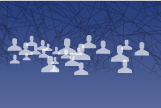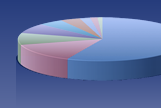PID Care in Development Working Party
PID Care in Development - Newsletter March 2015
Home/ Working Parties/ PID Care in Development Working Party/ News/ PID Care in Development - Newsletter March 2015
by Peter Jandus
Dear friends and colleagues,
I am a new board member. At the last ESID congress in Prague, I have been elected as chairman of the working party PID care in development. The PID Care in Development Working Party (PIDCD WP) is based on the J Project in East-Europe since 2004 and was established at the 2006 ESID Meeting in Budapest. The aim was to equalize patient care in Europe, eradicating differences between the Western and Eastern Europe, which arouse from heterogeneous backgrounds and economic circumstances. Since then, awareness has increased with registered patients in the ESID registry. In the pan-European survey of IVIG/SCIG use some progress has been made (Sediva A et al. European Immunoglobulin Map Group. Clin Exp Immunol. 2014). But at the same time difficulties persist to have unlimited access to an adequate immunoglobulin substitution. Due to financial crisis across Europe, budget savings with rationalization are creating pressure on health care, which counteract further progress.
Recently, I have been charged to further develop ESID. Why is there a need in that direction?
Our society is struggling with insufficient awareness outside of its members. The ESID is responsible for many achievements in the field of PID, which are only recognized by people in the field. The ESID needs to further develop itself in order to increase attractiveness to new members and also for finding new sponsors. It is important ESID’s visibility e.g. online presentation, education for PID and non PID specialists. Activities so far as the J-project continue to be supported, which help to increase awareness of PID. However in a globalized world, ESID needs to increase collaborations with other societies. Especially, the potential for a closer cooperation with our congress partner IPOPI beyond our congress activity has not been further considered. If we want to achieve changes in diagnostics and treatment at European level, we need to work together and support each other’s activities.
Exciting times are ahead of us. The ESID is on the way to new destinations.
Peter Jandus
Chairman Working Party PID care in Development




